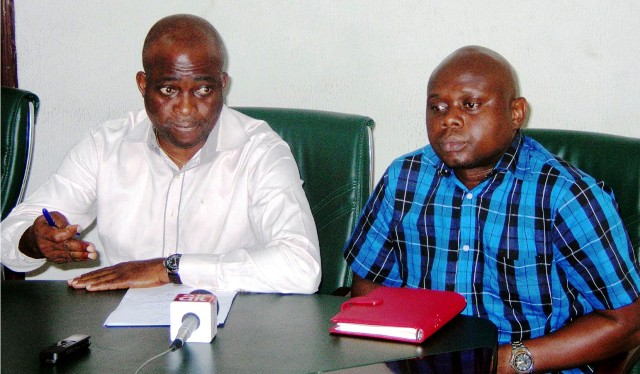Business
Chamber Seeks Better Environment For OPS

The Awka Chamber of Commerce and Industry, Mines, Agriculture (AWKACCIMA), has called on the federal and state governments to provide basic infrastructure to reduce the cost of doing business in Nigeria.
Chief Felly-Zontal Akosa, made the call at his installation as the ninth President of AWKACIMMA in Awka, yesterday.
He said the appeal became necessary because optimal operation of the Organised Private Sector (OPS) was the surest way to pull the Nigerian economy out of the woods.
Akosa identified some challenges facing private investors, including power insufficiency, the lack of reticulated water as well as poor road and rail infrastructure.
He urged governments to evolve policies that would support industrial development and create favourable environments for businesses to thrive.
He urged the Federal Government to consider building railways from Onitsha, Anambra, to other points, such as Lagos, Port-Harcourt through Owerri as well as Abakaliki, Enugu and Umuahia to open up the South East region.
He said his mission was to galvanise the private sector in Awka to create more employment opportunities for the youth.
Akosa urged Govenor Willie Obiano to expedite action on the permanent site of the trade fair complex in Awka, while other stakeholders helped in attracting international attention to the area.
A former Secretary to Anambra State Government, Mr Oseloka Obaze, said government could not build the economy alone hence the need for it to create a good environment for OPS operations.
Obaze, a policy consultant, said the federal and state governments must do all that was necessary to ensure that the OPS operated in the best environment.
He said there was a need to abolish the dual foreign exchange rate which favoured tourists instead of businesses.
He said the state should push for single foreign exchange window so that investors could be protected.
Business
Fidelity Bank To Empower Women With Sustainable Entrepreneurship Skills, HAP2.0
Business
President Tinubu Approves Extension Ban On Raw Shea Nut Export
Business
Crisis Response: EU-project Delivers New Vet. Clinic To Katsina Govt.
-

 News2 days ago
News2 days agoAmend Constitution To Accommodate State Police, Tinubu Tells Senators
-

 Politics2 days ago
Politics2 days agoSenate Urges Tinubu To Sack CAC Boss
-

 News2 days ago
News2 days agoDisu Takes Over As New IGP …Declares Total War On Corruption, Impunity
-
Business2 days ago
President Tinubu Extends Raw Shea Nuts Export Ban To 2027
-
Business2 days ago
Crisis Response: EU-project Delivers New Vet. Clinic To Katsina Govt.
-
Business2 days ago
President Tinubu Approves Extension Ban On Raw Shea Nut Export
-

 Business2 days ago
Business2 days agoPENGASSAN Rejects Presidential EO On Oil, Gas Revenue Remittance … Seeks PIA Review
-
News2 days ago
25 Killed In Adamawa Jihadist Attacks

